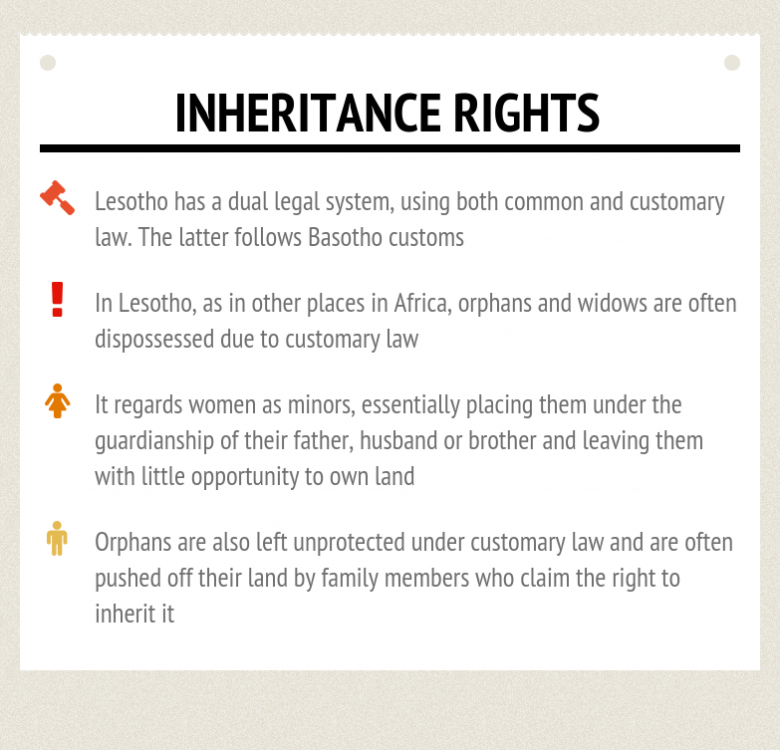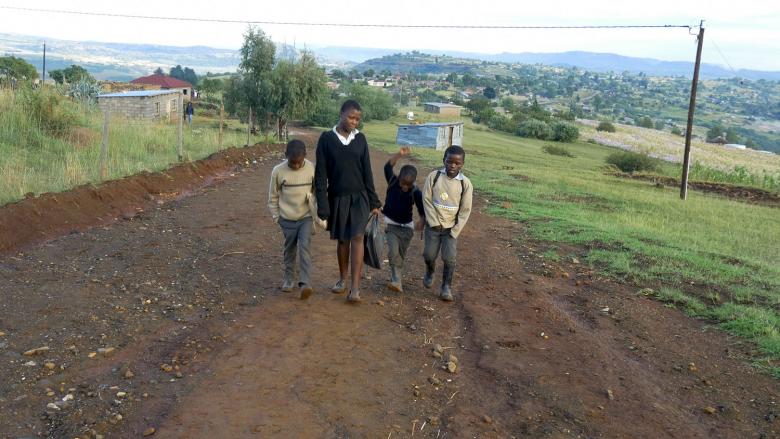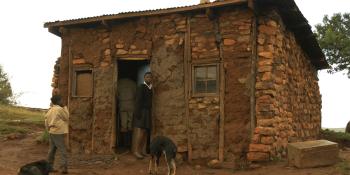Securing the Future of Lesotho's Orphans
The Kingdom of Lethoso is a dichotomy. Tourists are amazed by its breathtaking views of mountains and valleys. But 70% of the country’s population of 2 million, of which 300,000 are orphans, live in poverty.
Masease Masolanka lives in Mapoteng, a rural area about 70 kilometres from the capital, Maseru. Here, mountains and valleys stretch into a bright green landscape. But as Masaese looks down into the beautiful valley, she thinks about what’s happened to her and her family over the last three years. In 2012, when she was already caring for her own three children, as well as her widowed daughter’s three children, she learned of her sister-in-law’s death. Within days, she and her husband, Letseka, were left to care for his sister’s three children. Their family grew from five to 11 in just a few short months.
The Masolanka extended family used to live in a one-room, mud-floored hut made of stones, where they cooked, ate and slept. “We had no toilet and the house was collapsing around us,” says Masaese. “We tried to fix the house with corrugated iron sheets, but that didn’t work.”
The help they needed came in the form of Councillor Morallana Nkhereayane, from the Mapoteng district, one of the community’s leaders. Tasked with identifying and assessing families in need, he determines whether people are living in accommodation that is fit for habitation. If not, as in the case of the Masolankas, he brings it to Habitat for Humanity Lesotho’s (HFHL) attention.
Since 2007, HFHL has been helping orphans and vulnerable children who don’t have access to decent shelter building fully subsidized two-bedroomed homes.
In September 2014, HFHL helped the Masolankas build a two-room house and a pit latrine using grey concrete blocks and corrugated iron sheets for the roofs. They have turned the new home into bedrooms and use the old house as a kitchen where Masaese can light a fire for cooking and warmth. Now, when the old house needs repair, they can fix it without the pressure they were under before.
Addressing the plight of the Masolankas is only part of the problem. With a third of Lesotho’s one million children having lost one or both parents mainly due to HIV/AIDS, HFHL recognizes the need for these children to be protected and feel secure. Habitat works with community leaders to make sure land is made available and there is security of tenure. Only then will a house be built. By giving the orphaned children the house and educating the family on inheritance rights, HFHL makes sure that orphans, like the Masolanka children, won’t be pushed off their land.


Since 2007, 60 community paralegals have been trained in partnership with the office of the Master of the High Court so that more families can understand their inheritance rights. Over the last two years this has resulted in more than 800 people being educated on inheritance rights and will writing through HFHL’s workshops on security of tenure and will registration.
This is only the beginning. HFHL plans to upscale its efforts and is working with partners to advocate for these vulnerable groups and influence government policy security of tenure and land rights. In a country known for both its beauty and social issues, HFHL work in Lesotho is fully aligned with the government’s national priorities working for those in need.
